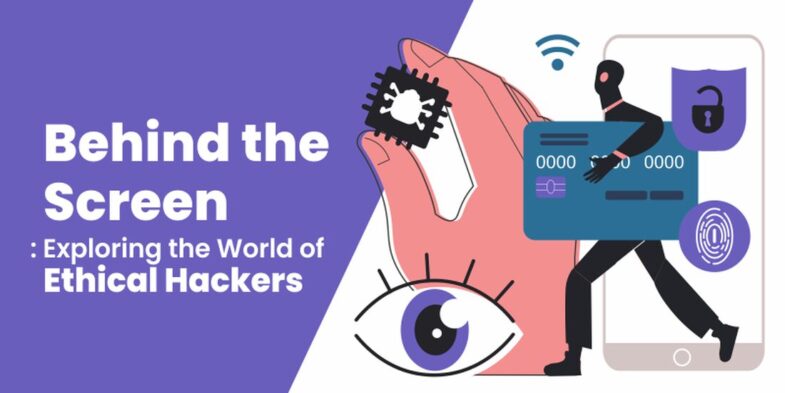Behind every computer screen, there is a world that many do not see. This world is inhabited by individuals who explore technology through ethical hacking. Ethical hacking, also known as white hat hacking, involves legally accessing computer systems and networks to test security and find vulnerabilities.
Ethical hackers help organizations and companies protect themselves from cyber threats. By taking an Ethical Hacking Certification, one can learn valuable skills like penetration testing, vulnerability assessment, and network security monitoring.
Table of Contents:
- Introduction to Ethical Hacking
- The Evolution of Ethical Hacking
- Key Skills and Knowledge Required
- Types of Ethical Hacking
- Ethical Hacking Tools and Techniques
- The Role of Ethical Hackers in Cybersecurity
- Ethical Hacking vs. Malicious Hacking
- Challenges and Ethical Dilemmas
- Ethical Hacking Certifications and Career Paths
- Conclusion: The Impact and Future of Ethical Hacking
Introduction to Ethical Hacking
Ethical hacking, also known as white hat hacking, refers to the practice of identifying security vulnerabilities in software, operating systems, networks or any other systems by following legal and ethical procedures. The goal of ethical hacking is to improve security by finding vulnerabilities before malicious hackers can exploit them.
With the increasing reliance on technology and digitalization of data, cybersecurity has become one of the most important aspects of our lives. Ethical hackers play a crucial role in protecting individuals and organizations from cyber threats by discovering and responsibly disclosing security weaknesses.
The Evolution of Ethical Hacking
The concept of ethical hacking emerged in the 1990s with the rise of hacking culture and computer security research. Early hackers were simply curious individuals who explored computer systems without any malicious intent. Over time, some hackers started using their skills to break into systems for fun or personal gain, giving rise to the term “cracking”. Meanwhile, security professionals realized the need to think like attackers to strengthen defenses.
This led to the development of “penetration testing”, where authorized individuals conducted controlled attacks on systems to evaluate security. Gradually, the practice of using hacking skills for defensive purposes became known as “ethical hacking”. Today, ethical hacking has evolved into a full-fledged cybersecurity profession with defined methodologies, certifications and standards of practice.
Key Skills and Knowledge Required

Source: simplilearn.com
To become an effective ethical hacker, one needs to develop a wide range of technical, analytical and interpersonal skills. On the technical front, proficiency in programming, networking, operating systems and frameworks is essential. Ethical hackers also need expertise in security domains like application security, network penetration testing, social engineering etc.
Strong analytical and problem-solving abilities are required to methodically evaluate systems, think like attackers and discover novel vulnerabilities. Ethical hackers also need excellent communication and documentation skills to present findings professionally and ensure timely remediation of issues. Maintaining up-to-date knowledge of the latest hacking techniques and compliance standards is also important in this evolving field.
Types of Ethical Hacking
There are different types of ethical hacking engagements based on the scope and target systems:
- Network Penetration Testing: Evaluating the security of network infrastructure components like firewalls, routers, switches etc. and attempting to gain unauthorized access.
- Web Application Penetration Testing: Identifying vulnerabilities in web applications and associated databases by simulating attacks like injection flaws and authentication bypass.
- Wireless Penetration Testing: Auditing the security of wireless networks and devices using techniques like war driving and cracking WEP/WPA keys.
- Social Engineering: Tricking users into revealing sensitive information like passwords through pretexting and phishing to evaluate awareness.
- Mobile Application Penetration Testing: Finding bugs in mobile apps for Android and iOS platforms.
- Internal Penetration Testing: Conducting purple team exercises to test an organization’s security from the inside.
- External Penetration Testing: Attacking an organization’s systems from outside its security perimeter over the internet.
Ethical Hacking Tools and Techniques
Ethical hackers leverage both open source and commercial tools as well as manual techniques for reconnaissance, scanning, exploitation and post-exploitation activities. Some popular tools include Nmap for network mapping, Burp Suite for web app testing, Wireshark for packet analysis, Metasploit for exploitation, Hashcat for password cracking and Kali Linux as the main operating system.
Common techniques involve footprinting, port scanning, vulnerability scanning, sniffing, spoofing, session hijacking, privilege escalation, maintaining access, and covering tracks. Ethical hackers follow standard methodologies like OSSTMM, PTES and OWASP to ensure a structured testing process. Pen tests are usually non-destructive and any critical vulnerabilities uncovered are reported privately to the stakeholders.
The Role of Ethical Hackers in Cybersecurity
Ethical hackers play a vital role in strengthening cyber defenses and mitigating risks for individuals and organizations. By proactively evaluating systems from an attacker’s perspective, they help identify vulnerabilities that could potentially be exploited by real threats. Their penetration test reports provide actionable insights and recommendations to remediate weaknesses before they are abused.
Ethical hackers also help organizations comply with security standards and regulations. On an operational level, they support incident response by providing forensic analysis and remediation guidance in the event of breaches. As cyberattacks continue to evolve rapidly, ethical hackers will remain at the forefront of assessing and enhancing security through innovative testing methodologies and strategies. Their work helps build a more robust and resilient cyber ecosystem for all.
Ethical Hacking vs. Malicious Hacking

Source: bleepingcomputer.com
While ethical hackers and malicious hackers both exploit vulnerabilities, there are some key differences between them. Ethical hackers only conduct authorized tests with the owner’s consent, follow legal and ethical best practices, do not cause any disruption to systems or steal data. On the other hand, malicious hackers break into systems without permission to cause harm, commit cybercrimes like data theft, or demand ransom.
Ethical hackers disclose all findings responsibly and help organizations fix issues, whereas malicious hackers aim to maintain long-term access or damage. The work of ethical hackers is also driven by an intention to strengthen security, as opposed to malicious hackers who operate for personal, financial or other gains through illegal means. Hence, it is important for ethical hackers to always obtain prior approvals and adhere to the defined scope to avoid any legal troubles.
Challenges and Ethical Dilemmas
While ethical hacking serves an important role, it also presents some challenges. Ethical hackers need to constantly upgrade their skills against evolving threats. They also have to balance the objectives of comprehensive testing without overstepping ethical boundaries. Sometimes hackers may encounter situations with ambiguous compliance, like testing outdated unsupported systems or applications with privacy implications.
There are also risks of accidental damages or discovery of sensitive data requiring discretion. Maintaining impartiality as a contractor and avoiding conflicts of interest can be difficult. Ethical hackers may face legal liability if engagement terms are misunderstood. They also have to deal with occupational stress from the nature of their work. Overall, ethical decision making and clear communication are crucial for ethical hackers to navigate dilemmas and establish trust with clients.
Ethical Hacking Certifications and Career Paths

Source: pcworld.com
There are several globally recognized certifications for ethical hackers to validate their skills and pursue careers. Some popular options include the Certified Ethical Hacker (CEH), EC-Council Computer Hacking Forensic Investigator (CHFI), GIAC Certified Penetration Tester (GPEN) and Licensed Penetration Tester (LPT) certifications.
Ethical hackers can find employment across industries as security consultants, penetration testers, vulnerability assessors or managers in large cybersecurity firms, smaller MSSPs, as government contractors, or as in-house teams in organizations. With experience, opportunities also exist as chief information security officers, instructors/researchers or independent security advisors. Continuous learning and hands-on experience through personal projects and hacker community involvement also help ethical hackers advance their careers.
Conclusion: The Impact and Future of Ethical Hacking
In conclusion, ethical hacking has transformed into an essential cybersecurity function that helps strengthen overall security posture and mitigate risks. As digital transformation accelerates across all industries, the need for rigorous security testing will continue to grow. Ethical hackers play a pivotal role in proactively identifying vulnerabilities, enhancing defenses, ensuring compliance and responding to incidents. Emerging technologies also present new surfaces for ethical hackers to evaluate, from IoT and operational technology to artificial intelligence.
While challenges remain around skills, tools and ethical dilemmas, the profession of ethical hacking is poised to evolve further. With rising cyber threats, ethical hackers will remain at the forefront of assessing and enhancing security through innovative strategies. Their efforts are crucial to build trust in an increasingly connected world.

